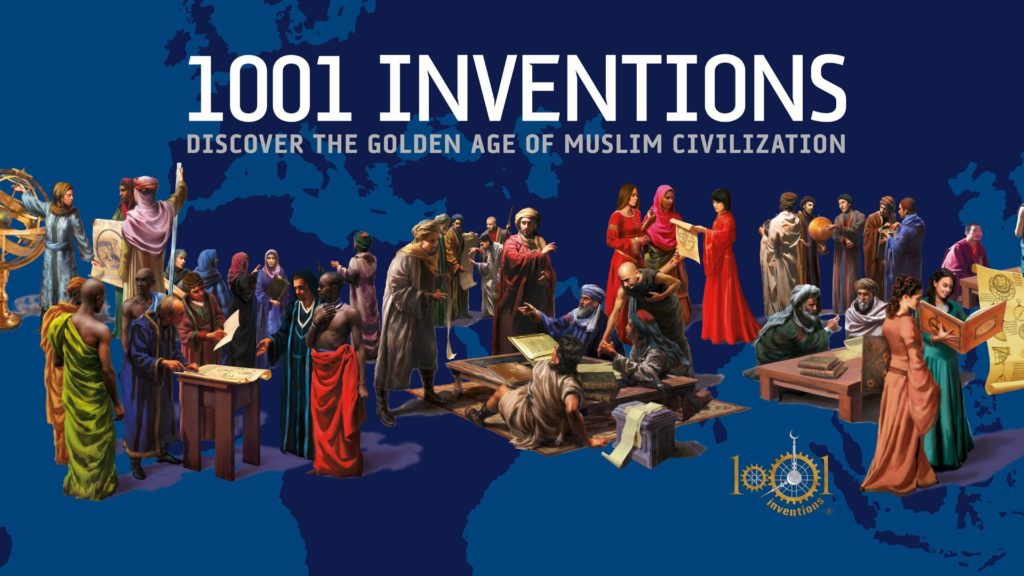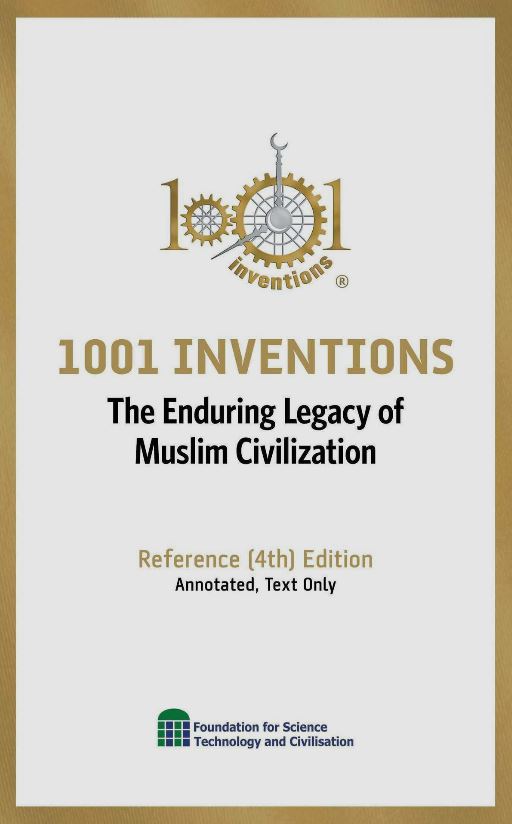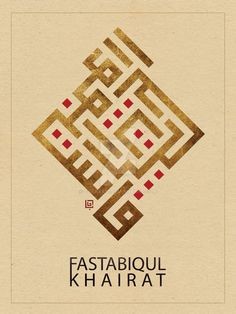Originally published in Wasat, no. 30 / December 2019, at here.

Yes, I strongly believe that Islam commands Muslims to possess pioneering spirit and constantly generate breakthrough ideas that will shatter imaginary and real life barrier that inhibit personal success, progress and development.
The 5 dalils that will support my above point.
1. Islam commands Muslims to attain ihsan (excellence) in all things.
The Prophet has said, “Verily Allah has prescribed ihsan (proficiency, excellence) in all things. So if you kill then kill well; and if you slaughter, then slaughter well. Let each one of you sharpen his blade and let him spare suffering to the animal he slaughters.” (Narrated by Muslim)
Ihsan is popularly related to compassion. However, it also carries another meaning that is more relevant here which is striving for perfection or giving one’s best as implied from the above hadith by many scholars.
Another hadith that carries a similar meaning is the Prophet’s response to a request by Angel Gabriel who came to visit him in front of his companions, “Inform me about ihsan.” The Prophet replied, “It is that you should serve Allah as though you could see Him, for though you cannot see Him yet He sees you.” (Narrated by Muslim)
The hadith enjoins us not to submit to Allah by mere belief but to attain a higher (perfect) order of submission – as though we see Him with all His greatness in front of us or we feel His greatness and presence all the time.
Scholars view that upholding ihsan is not an option but an obligation. This is implied the word “kataba” (has prescribed) in the first hadith which is often used to mean obligatory.
Thus, the value of ihsan here must spur in us a “give-our-best” spirit to attain and produce the best and excellent result in our every endeavour.
Muslims cannot settle or content with mediocrity or average achievement.
Ihsan has two aspects, 1) to constantly improve our personal performance and achievement, and 2) to be the best in comparison with others’ achievement.
It is on the basis of the former that our past scholars strive to attain their “[to]day is better than yesterday and tomorrow is better than today”. The latter will be touched in the succeeding part.
It must also be highlighted that the Qur’an describes Muslims as the “best nation” (3:110). This is not a mere description of Muslims during the revelation but also a command for all Muslims to attain. Logically, this noble status can never be achieved without the value of ihsan.
2. Islam commands Muslims to compete with each other in doing good deeds.
There are many verses in the Qur’an that relate this point;
“For, every community faces a direction of its own, of which He is the focal point. Vie, therefore, with one another in doing good works. Wherever you may be, God will gather you all unto Himself: for, verily, God has the power to will anything.” (The Quran, 2:148)
“So for this let the competitors compete.” (The Quran, 83:26)
“And vie with one another to attain to your Sustainer’s forgiveness and to a paradise as vast as the heavens and the earth, which has been readied for the God-conscious.” (The Quran, 3:133)
As of hadiths, the following are some that point to the same meaning;

“If people knew what virtue lies in the azan and [praying] in the first row, and they could not [obtain these opportunities] except by drawing lots, they would definitely do so. If they knew what virtue lies in going early to prayer, they would have vied with one another [to do so]. If they knew what virtue lies in the evening and morning prayers, they would definitely go to them, even if crawling on their knees.” (Narrated by Al-Nasa’ii)
“There should be no envy but only in case of two persons: one having been endowed with wealth and power to spend it in the cause of Truth, and (the other) who has been endowed with wisdom and he decides cases with the help of it and teaches it (to others).” (Narrated by Muslim)
Both hadiths enjoin spirit of competition in rituals and charity. More interestingly, the hadiths teach us that the right way to “envy” someone’s achievement is to drive ourselves to do better than the person is, instead of destroying his accomplishment. This is the essence of healthy or ethical competition that is known today in business.
The spirit was alive among the companions during the life of the Prophet that each of them was trying to be better than the other in ibadah and charity.
One most prominent and popular example is reported in a hadith on Umar. It was reposted, when the Prophet made a public appeal for donation to support a military mission, Umar said, “At that time I had some money. I said, ‘Today I shall surpass Abu Bakr, if I am to ever surpass him on any day.’ I therefore brought half of my wealth. The Messenger of Allah s.a.w asked, ‘What have you left for your family?’ I replied, ‘The same amount.’ Abu Bakr r.a brought all that he had with him. The Messenger of Allah s.a.w asked him, ‘What have you left for your family?’ He replied, ‘I have left Allah and His Messenger for them.’ Thereupon I said, ‘I shall never surpass him in anything.’” (Narrated by Al-Turmuzi and Abu Daud)
Another hadith reports a competitive spirit between Abu Bakr and Umar r.a. Both have heard the Messenger of Allah s.a.w praising the way Ibn Mas`ud r.a. recited the Quran, saying: “A person who wants to recite the Quran as tenderly as it was revealed should recite it in the same way as Ibn Um ‘Abd does.” (Narrated by Ahmad and Ibn Majah)
Umar r.a hurriedly went to Ibn Mas`ud’s house at night to convey these glad tidings to him only to be told that Abu Bakr r.a. has already preceded him. Umar r.a. then said, “If he really did, then he usually does precede us in everything that is good. Whenever we compete against each other in goodness, Abu Bakr always wins!” (See article Competition in Good Deeds, at islamweb.net)
Competition and being competitive as driving forces for development and progress are a known fact in business studies and history of civilisations.
It is in the same spirit that many have driven themselves to venture into new terrain or pioneering work or invention that benefits many.
3. Islam encourages pioneering work.
The Prophet says, “He who introduced some good practice in Islam which was followed after him (by people) he would be assured of reward like one who followed it, without their rewards being diminished in any respect.” (Narrated by Muslim)
If we are to put together the meaning of this hadith with the above three points, we can conclude that Muslims are not only enjoined to do good deed and lead others to do the same but more importantly in the spirit of ihsan and competition to pioneer new deeds, new ways to good deed, new ideas or new invention, as long as they do not fall under prohibited bid`ah in Islam.
Nothing is dearer to Muslims than getting rewards from Allah and His pleasure that would guarantee salvation in the eternal life.
Here, the hadith points to such way. By pioneering new deeds, ways and ideas and inventing new things not done by anyone before, a Muslim would not only reap reward for his deed but also get a share from those who benefit from his pioneering contribution.
4. Islam encourages Muslim to leave behind legacy.

This is based on the Prophet’s saying, “When a man dies, his deeds come to an end except for three things: sadaqah jariyah (ceaseless charity); a knowledge which is beneficial, or a virtuous descendant who prays for him (for the deceased).” (Narrated by Muslim)
Sadaqah jariyah and beneficial knowledge are the relevant point here. Of course, Muslims will benefit from any sadaqah jariyah and knowledge but the one that is new and without peer will bring greater benefit to people and greater reward to its pioneer. This is also in line with the spirit of ihsan and competition. Although we do not belittle small and ordinary deeds, the spirit of doing and being the best requires us to chart new and pioneering terrain.
Historically, pioneering work that benefits many would be remembered most and last in history and this could be another source or benefit for the pioneer – du`a’ (prayer) from all that remember him throughout history.
5. Islam values itqan (being meticulous) in life.
The Prophet says, “Allah loves to see his servant who does a job with itqan (meticulously).” (Narrated by Al-Tabarani)
It could be said that itqan is another side of ihsan. One manifestation of ihsan is to do anything with itqan or in a meticulous manner.
Being meticulous includes asking questions; What have not been done before? What is in need for improvement? How can it be done differently? rather than repeating the same thing.
Closing remark
It must be highlighted also knowing the above and inculcating them in us are important but is not enough to effect pioneering work.
We need right skill and knowledge on how to translate the above into real action and product. We also need skills and knowledge relevant to specific work that we want to do or field we are venturing into.
These cannot be found in religious sciences only. Thus, to put the above in action effectively, do read more on people who have pioneered new things among Muslims and non-Muslims, past and present.
We also need to expand our knowledge to areas such as business studies that provide many tools for generating creative and innovative ideas.

